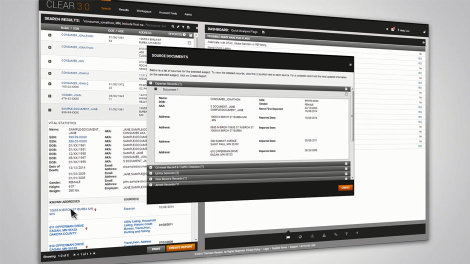
Small-cap companies in VTI only make up around 6% of the fund’s total market cap. This might be surprising given that VTI includes more than 3,500 companies, but even the aggregate market share of those small-cap players does not stack up against large-cap stocks. QQQ investors should at least consider QQQM here, although it may only be appropriate for a percentage of that population. It’s a very strategic move on Invesco’s part to offer a lower-cost version of QQQ. The vast majority of all ETF inflows are going to funds with ultra-cheap expense ratios, so it makes sense for the company to attempt to capture a larger share of that market. In reality, QQQ has never really had to drop its expense ratio to compete.
They have a free Retirement Fee Analyzer that tells you the future impact of fees on your portfolio. Buying fractional shares allows you to maximize your investment. You won’t have to keep your money idle until you have enough to purchase a total share. This difference for a long-term investor could be considered significant.
QQQ vs TQQQ: Which Should You Add to Your Portfolio?
All companies in the Invesco QQQ Trust must be listed on the Nasdaq 100 exchange for at least two years. Namely, companies that have been listed for only one year but have extraordinarily high market capitalizations may make the cut. Tech stocks account for the majority of QQQ’s weight, with consumer discretionary and communication services names representing another chunk of the ETF’s roster.

Both intend full replication of the Nasdaq 100 and performance is expected to be virtually identical. It’s more of a speculative instrument, with the potential for very large gains and, conversely, big losses. Many long-term investors tend to stay away from leveraged ETFs, whereas those with a higher risk tolerance might find them thrilling. qqq vs qqqq If you make money with TQQQ, you’ll probably only pay capital gains taxes because it’s used with more of a short-term hold strategy. QQQ pays dividends in quarterly distributions, which are taxable. However, TQQQ does occasionally pay dividends as well, so you will be taxed on those too if you’re holding the ETF at the time.
QQQ Advantages and Disadvantages
It’s performed very well since its inception (although not very recently), so it might be worth a try. Just remember, those big gains can quickly turn into large losses. However, it’s important to keep in mind that aside from some blips along the way, TQQQ has only existed during bull markets. It’s nearly impossible to predict how it might perform during a true bear market. With that in mind, both of these ETFs have the potential to bring in great returns. If you’re unsure where to get started, you may want to find a broker that specializes in one of these ETFs.
- Companies with bankruptcy issues are omitted from the Invesco QQQ Trust.
- VGT tracks a broad index of companies in the information technology sector which the company considers to be the following three areas; software, consulting, and hardware.
- In the end, QQQ or VGT might be a nice add-on to your portfolio.
In a digital age where information moves in milliseconds and millions of participants can transact… Most of the main technical indicators are available to compare here. This includes moving
averages, MACD, RSI, bollinger bands, support and resistance levels, and more. Compare these
to figure out the best entry points from a technical setup perspective. 3) Fundrise is by far the best way I’ve found to invest in Real Estate.
What Is the Difference Between QQQ and QQQQ?
It’s a pretty standard ETF that aims to duplicate the performance of the tech-heavy Nasdaq 100 as closely as possible. Created in 1999, it boasts over $153 billion in assets under management as of March 2021. Conclusively, VTI and QQQ are two very different funds with different objectives.
Watch Invesco QQQ on Timely Innovation – Bloomberg
Watch Invesco QQQ on Timely Innovation.
Posted: Tue, 24 Jan 2023 08:00:00 GMT [source]
These industries include consumer discretionary, industrial, technology, health care, and others. Because of its heavy weighting in tech stocks, QQQ is considered to be an aggressive-growth stock fund. That means investors can expect higher short-term volatility, compared to a broader stock index, such as the S&P 500. Based upon its performance history, if you choose to invest, you may be rewarded with above-average returns in exchange for taking on the additional risk.
QQQ holdings
Why doesn’t Invesco just chop the fee on QQQ from 0.20% to 0.15% and save itself some hassle? The company is already earning hundreds of millions of dollars on QQQ and it almost certainly doesn’t want to give any of that up. It’s easier (and more fee aware) to offer a lower-cost alternative on new money than simply offer a discounted price on the total asset pot. Earlier this month, the company launched the Invesco Nasdaq 100 ETF (QQQM), another ETF meant to track the index.
